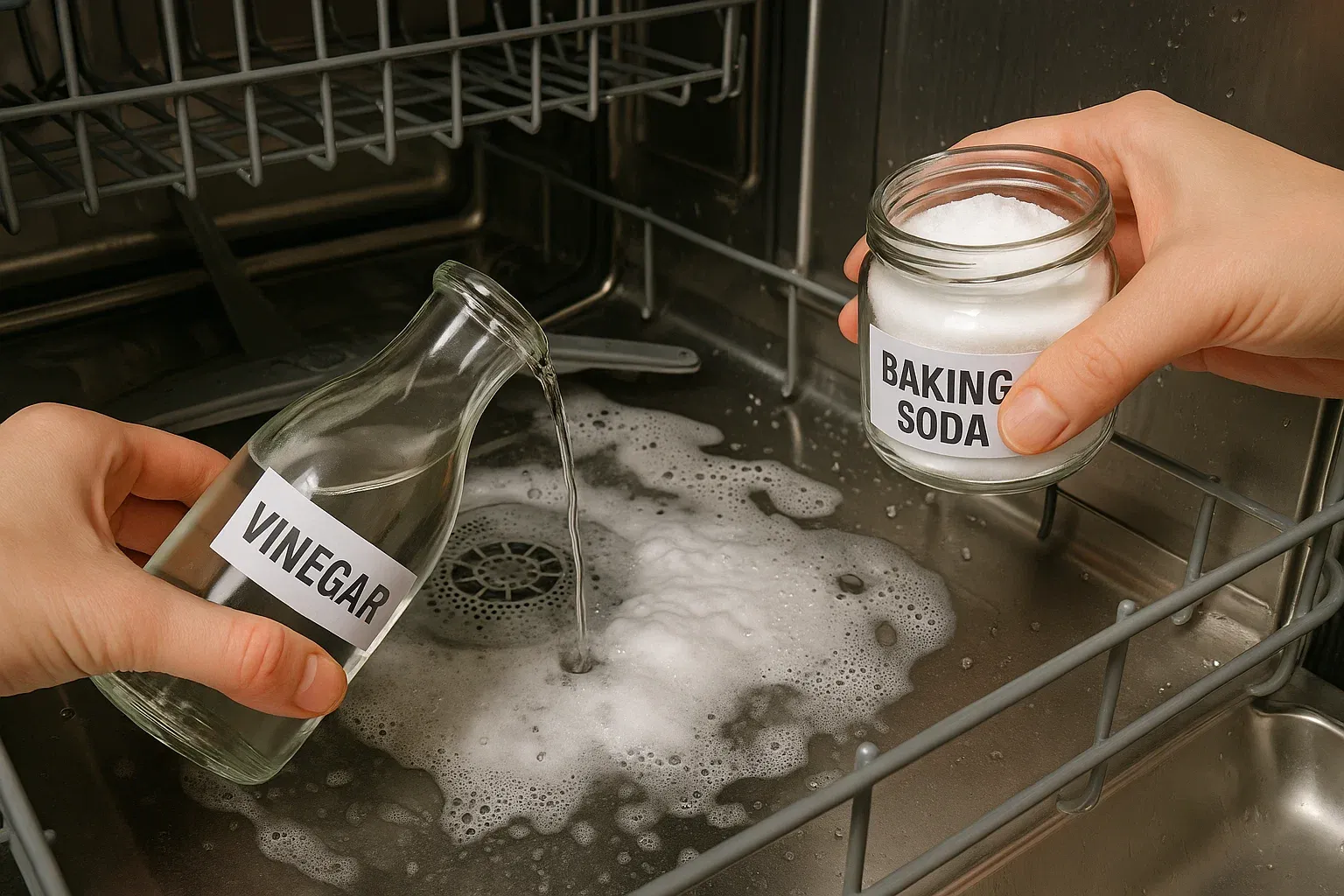Blog

How Often Should You Clean Your Dishwasher? Sacramento's Guide to Deep Cleaning & Maintenance
If you've ever opened your dishwasher only to be greeted by musty smells or cloudy dishes, you're not alone. These are signs that your dishwasher desperately needs cleaning. In Sacramento households—especially those in areas like Elk Grove, Natomas, and Arden Arcade—hard water and daily use can make things worse. So, how often should you clean your dishwasher, and what’s the best way to maintain it? Let’s dive into this step-by-step dishwasher cleaning guide brought to you by Fair Appliance Repair.

Why Cleaning Your Dishwasher Is So Important
Many people assume dishwashers clean themselves. That’s a dangerous myth. Over time, food particles, soap scum, grease, and even mold can build up in your dishwasher’s filter, spray arms, gasket, and drain. This buildup can cause:
Bad odors
Clogged drains
Inefficient spray patterns
Dishes that come out dirty or streaky
Increased wear and tear
Tip: Regular maintenance can extend the life of your dishwasher by several years.
📅 Recommended Dishwasher Cleaning Schedule (For Sacramento Homes)
Component
Cleaning Frequency
Dishwasher Filter
Every 2–3 Weeks
Spray Arms
Once a Month
Interior Deep Clean
Monthly
Door Gasket and Seal
Monthly
Drain & Inlet Valve
Every 2–3 Months
Exterior (Buttons, Panel)
Weekly Wipe-Down
Homeowners in Sacramento, especially those near downtown or in hard water zones like Citrus Heights and Arden Arcade, may need to clean more frequently.
🧽 Step-by-Step Guide: How to Clean Your Dishwasher Filter and Spray Arms
Step 1: Remove & Rinse the Filter
👉 Locate the filter at the bottom of your dishwasher.
👉 Twist and lift it out carefully.
👉 Rinse under warm water.
👉 Scrub gently with an old toothbrush to remove grime.
Step 2: Clean Spray Arms
✔ Detach the lower and upper spray arms.
✔ Use a toothpick or small brush to unclog holes
.
✔ Rinse thoroughly.
Pro Tip: If your spray arms feel slimy, soak them in vinegar before scrubbing.
🌿 Natural Dishwasher Cleaning: Vinegar & Baking Soda
Looking for a chemical-free solution? Here's a natural way to deep clean your dishwasher.
How to Clean Dishwasher with Vinegar (Interior Cleaning)
✅ Pour 1 cup of white vinegar into a dishwasher-safe bowl.
✅ Place it on the top rack.
✅ Run a hot water cycle with no detergent.
Optional: Add Baking Soda
✅ After the vinegar cycle, sprinkle 1 cup of baking soda on the bottom.
✅ Run a short, hot cycle.
This removes odors and whitens your dishwasher’s interior.
💧 How to Clean the Drain & Inlet Valve
If your dishwasher is not draining properly or the water supply seems weak:
✔ Remove the lower front panel.
✔ Check for clogs in the drain hose.
✔ Inspect the inlet valve for debris.
Warning: Always unplug the unit before removing any parts.
🔍 Signs Your Dishwasher Needs Immediate Cleaning
👉 Persistent bad odors
👉 Water pooling at the bottom after cycles
👉 Dishes not coming out clean
✅ Mold or slime around the door seal
✅ Visible debris in the filter
If you notice these, it’s time to clean or call in a local dishwasher technician.
🧼 Bonus Tips: Dishwasher Gasket and Door Seal Cleaning
✔ Mix warm water with mild soap.
✔ Use a cloth or soft brush to scrub around the gasket.
✔ Dry thoroughly to prevent mold growth.
Tip: Don’t forget to clean the detergent dispenser and rinse aid cap.
📍 Local Sacramento Dishwasher Maintenance Solutions
Whether you live near Elk Grove, downtown Sacramento, or Arden Arcade—Fair Appliance Repair offers professional dishwasher inspection, cleaning, and repair.
Why Choose Us?
✅ Same-day service in many Sacramento zip codes (95814, 95833, etc.)
✅ Trusted by homeowners in Citrus Heights and Natomas
✅ Affordable appliance maintenance packages
✅ Specialists in dishwasher gasket cleaning, spray arm repair, and drain solutions
📞 Call 916-333-8388 to schedule a visit or contact us online.
🤖 Voice Search Friendly FAQs (With Schema Markup)
Q1: How often should I clean my dishwasher in Sacramento?
A: Every 1–2 weeks for the filter, and monthly for the full interior.
Q2: What’s the best way to clean a dishwasher filter?
A: Rinse it under warm water and scrub with a soft brush.
Q3: Why does my dishwasher smell even after a cycle?
A: Likely due to buildup in the filter, spray arms, or drain.
Q4: Where can I get dishwasher cleaning help near me in Sacramento?
A: Fair Appliance Repair provides dishwasher servicing in Natomas, Elk Grove, and more.
Q5: Is vinegar safe for cleaning dishwashers?
A: Yes. White vinegar is effective for removing grease, grime, and hard water stains.
For help with deep cleaning, draining issues, or bad dishwasher smells—Fair Appliance Repair is here to help.
📍 Serving Sacramento, Elk Grove, Citrus Heights, Natomas, Arden Arcade, and nearby areas.
☎️ Call now: 916-333-8388


























